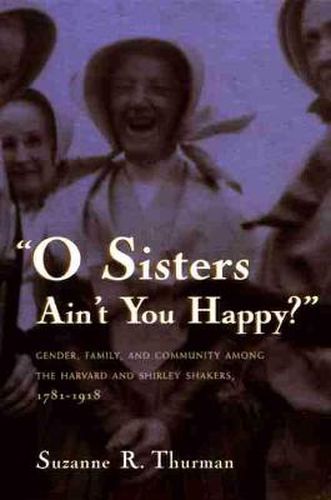Readings Newsletter
Become a Readings Member to make your shopping experience even easier.
Sign in or sign up for free!
You’re not far away from qualifying for FREE standard shipping within Australia
You’ve qualified for FREE standard shipping within Australia
The cart is loading…






Compelling, in-depth analysis of Shaker villages that sheds light on how communal attitudes helped to liberate Shaker women. Drawing on archival material from Shaker members, observers, and apostates, noted historian Suzanne R. Thurman offers a scholarly yet eminently readable study of life in two of the oldest, most prominent American Shaker villages: the Harvard and Shirley communities of Massachusetts. Even as she delves into the complex fabric of Shaker social life, Thurman challenges traditional perceptions of gender roles within the community. Shaker spiritual and social ethics, she points out, strongly favored women. Celibacy and an androgynous theology, for instance, allowed androgynous social roles to evolve. Another key factor was the lively arena of nineteenth-century reformers and intellectuals in nearby Boston. With admirable detail, Thurman documents the relationship that grew between these forward thinkers and the Believers. Their influence, she argues, enlightened Shaker consciousness and empowered their women of Harvard and Shirley with opportunities denied them in the world at large. The author also explores links, particularly economic, between Shakers and the greater American society. Treating Harvard and Shirley Believers as an idiosyncratic part of the nation rather than a fringe group, Thurman sheds new light on their constant struggle to be in the world but not of it.
$9.00 standard shipping within Australia
FREE standard shipping within Australia for orders over $100.00
Express & International shipping calculated at checkout
Stock availability can be subject to change without notice. We recommend calling the shop or contacting our online team to check availability of low stock items. Please see our Shopping Online page for more details.
Compelling, in-depth analysis of Shaker villages that sheds light on how communal attitudes helped to liberate Shaker women. Drawing on archival material from Shaker members, observers, and apostates, noted historian Suzanne R. Thurman offers a scholarly yet eminently readable study of life in two of the oldest, most prominent American Shaker villages: the Harvard and Shirley communities of Massachusetts. Even as she delves into the complex fabric of Shaker social life, Thurman challenges traditional perceptions of gender roles within the community. Shaker spiritual and social ethics, she points out, strongly favored women. Celibacy and an androgynous theology, for instance, allowed androgynous social roles to evolve. Another key factor was the lively arena of nineteenth-century reformers and intellectuals in nearby Boston. With admirable detail, Thurman documents the relationship that grew between these forward thinkers and the Believers. Their influence, she argues, enlightened Shaker consciousness and empowered their women of Harvard and Shirley with opportunities denied them in the world at large. The author also explores links, particularly economic, between Shakers and the greater American society. Treating Harvard and Shirley Believers as an idiosyncratic part of the nation rather than a fringe group, Thurman sheds new light on their constant struggle to be in the world but not of it.